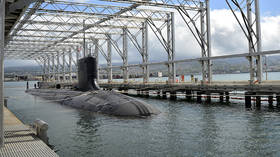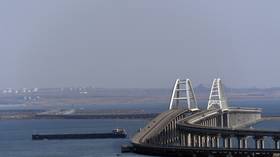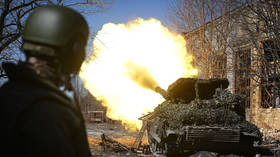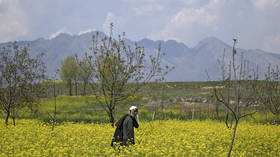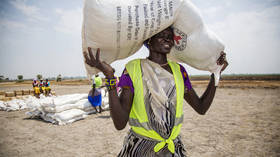AUKUS presents nuclear waste risk to Australia – Guardian
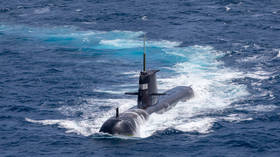
Australia is in danger of becoming a “poison portal” for international radioactive waste under the three-way AUKUS pact, The Guardian reported on Monday, citing a parliamentary inquiry.
AUKUS was established in 2021 between the US, the UK and Australia in part to facilitate the transfer of military technology among the three allies, with the American military pledging to help Canberra obtain nuclear-powered submarines.
However, according to the Guardian report, new laws to establish a safety framework for Australia’s planned nuclear-powered submarines could also allow the US and UK to send waste there. Both the US and the UK are reportedly struggling to deal with their own waste due to a lack of long-term, high-level waste facilities.
Canberra introduced the Australian naval nuclear power safety bill in November of last year. If passed, it will establish a nuclear safety watchdog and allow for naval nuclear propulsion facilities to be created, including for storing or disposing of radioactive waste from AUKUS submarines.
A second bill to enable the regulator to issue licenses was introduced at the same time. Both have been referred to a Senate inquiry, which is due to report later this month, according to the report.
The issue of waste disposal was “highly disturbing,” according to Dave Sweeney, the Australian Conservation Foundation’s nuclear-free campaigner. He suggested that the AUKUS partners could see Australia as “a little bit of a radioactive terra nullius.”
This is the case “especially when it’s viewed in the context of the contested and still unresolved issue of domestic intermediate-level waste management, the clear failure of our AUKUS partners to manage their own naval waste, the potential for this bill to be a poison portal to international waste, and the failure of defense to effectively address existing waste streams, most noticeably PFAS [toxic per- and polyfluoroalkyl substances],” Sweeney argued.
Australian Defense Minister Richard Marles has previously accused the Greens of “fearmongering” over similar radioactive waste-related concerns, The Guardian wrote. Marles reportedly claimed that the government would not accept waste from the other nations.
According to a recent Politico report, the AUKUS security partnership could be expanded by the end of the year to include Canada and Japan. India, New Zealand, and South Korea have also been floated as potential members.
The AUKUS partners maintain that the bloc is not a formal military alliance and is solely focused on technology sharing. Meanwhile, China has condemned the project as an attempt to build an “Asia-Pacific version of NATO,” warning that it would kick off an “arms race” in the Indo-Pacific.
